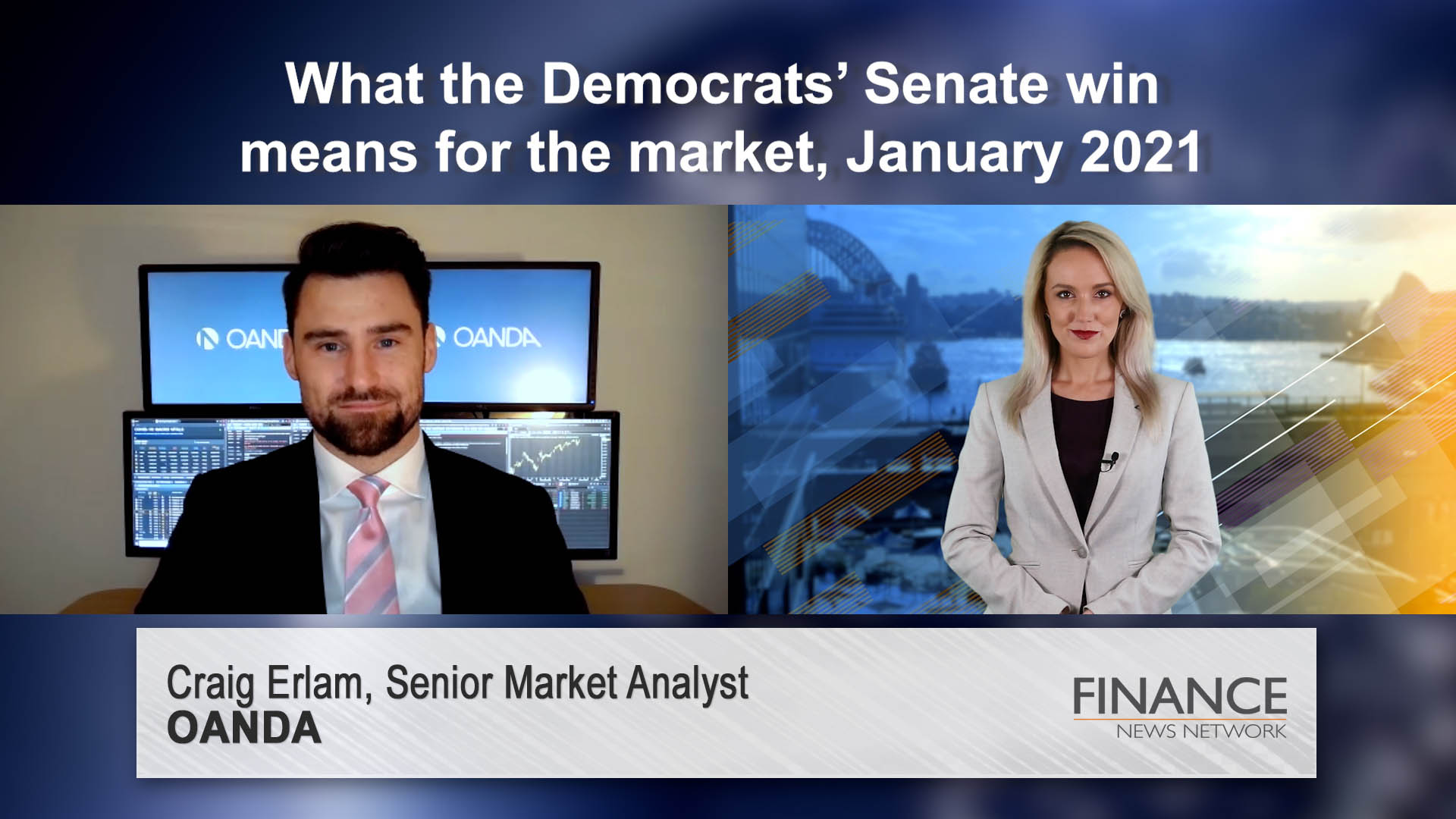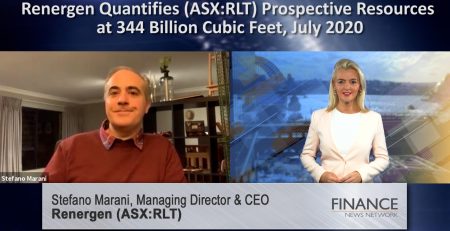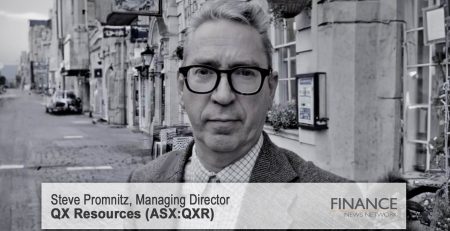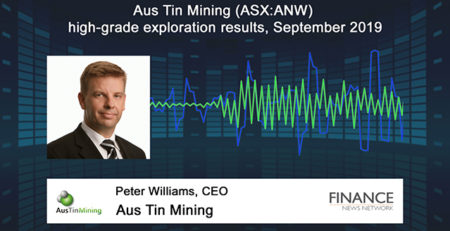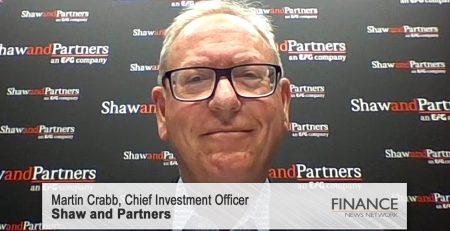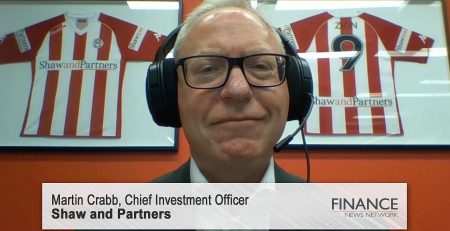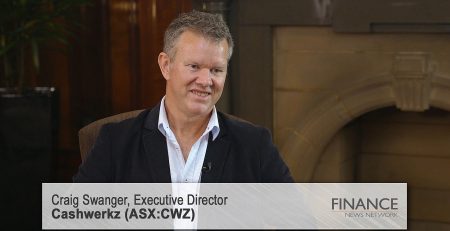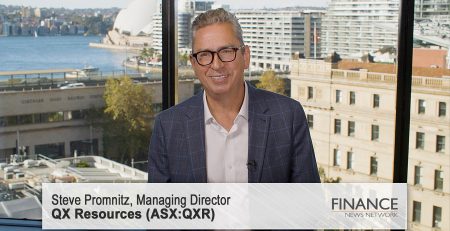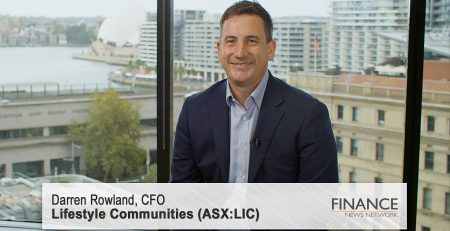What the Democrats’ Senate win means for the market – the winners and the losers
OANDA Senior Market Analyst Craig Erlam discusses the recent Georgia Senate runoff and what control of the Senate and a Biden Presidency mean for equities; the vaccine rollout in Europe; the new Brexit deal; and the commodities market.
Katrina Bullock: Hello. Katrina Bullock for the Finance News Network. Joining me today from London is Craig Erlam. Craig is a senior market analyst for OANDA, covering the UK, Europe, the Middle East and Africa. Craig, welcome to the network.
Craig Erlam: Thanks for having me.
Katrina Bullock: Absolute pleasure. Now, the Democrats managed to secure the two Georgia seats yesterday, giving them the balance of power in the Senate. And, of course, giving President-Elect Biden a much greater ability to pass new legislation when he takes office in around a fortnight's time. So, what does this mean for the share market? Who are the winners and who are the losers?
Craig Erlam: Well, I think, first and foremost, you look at the response we've seen in the markets, and it seems there aren’t that many losers. And that was the fear going into the Georgia runoff was that a clean sweep by the Democrats may actually be negative for these equity markets — the prospect of tax hikes, and more regulation. But we've not really seen that response so far, so I'm sure there's a collective sigh of relief on that front. In terms of winners, though, there are going to be some sectors which we're going to be keeping a close eye on going forward. I think renewables is the most obvious one. It's no hidden secret that the Democrats are very much progressive on the energy front. So, renewable stocks, I think, are going to remain a hot favourite over the next couple of years at least.
But, I think, even in the shorter term, promising big infrastructure spend, more fiscal stimulus, trying to put more money in people's pockets is going to do things good for stocks like consumer discretionary stocks, but infrastructure-related stocks as well. So, I think there's a wide range of potential winners to come over the next couple of years prior to any tax changes, at which point we'll have to reassess, but even on the tax front it is worth noting that you have a split Congress. So, if you want to make big tax changes, you need every single member of the Democrats in that Senate on your side. So, massive tax changes are going to be difficult because there is a wide range of Democrats there. So, even tax changes may not be quite as severe as anticipated.
On the losing side, it's hard to say because, like I said, there's been a broad gain, really, in these markets over the course of the last day or two. And even tech, which may have been… had a target on its back for much of the last few years from the left-leaning Democrats, it's actually become quite a bi-partisan issue. So, all of a sudden you're asking questions about how much of a difference a Biden Presidency makes. The Republicans are very much targeting tech firms as well, and Trump in particular hasn't been particularly impressed with the big social media giants. So, maybe they won't have as big a target on their back as anticipated. But they may just not be as big gainers as some of the renewable and other stocks which they will be more focused on.
Katrina Bullock: Now, you've mentioned that players in the green energy market may see gains from Biden’s regime. On the flip side of that, do you think we will see shares in fossil fuel players — so, you know, coal, oil, gas — start to decline?
Craig Erlam: Any renewable push from the Democrats is not going to be a three- to five-year plan. It's very much a 10-, 20-year plan. We're not going to see fossil fuels getting the cold shoulder immediately. We're not going to see that resurging shale industry be pushed aside. It still is a massive job creator in the country and high-skill jobs as well. And I think in the near future, it’s still going to continue to be an important industry in the US which is going to continue to grow organically, but they're just not going to have the backing that Trump did. Trump was very much pro fossil fuels, and the Democrats are very much more towards the renewable side, but this is a very slow, progressive process, and I think that's worth noting. So I think even now what we're seeing is many of these fossil fuel-related companies are still going to be heavily focused just on the price because we've seen such a volatile year and the prices have been doing quite well recently. So, I expect many of these companies are going to be benefiting more from reasonable prices than they are going to be fearing, per se, a Biden Presidency.
Katrina Bullock: And now that Democrats have secured the balance of power in the Senate, and President Trump has promised to facilitate a smooth transition of power to Biden, in your view, is there chance President Trump will be able to successfully contest the Federal Election result?
Craig Erlam: No. He's given it his best effort. There's no doubting that. But I think what we've seen in the last couple of days has been the final nail in the coffin. I think his chances were extraordinarily slim in the first place, but I think what we've seen in the last couple of days really has put the final nail in the coffin. Not only has there been an incredible shock at the events yesterday on Capitol Hill, but more importantly, to some extent, key allies are starting to leave his side. Even Mike Pence passing the opportunity. We saw what kind of a backlash the Vice-President had from Trump on Twitter before his account was actually blocked. And we're seeing all the now members of his cabinet slowly stepping aside, wanting to provide some distance. Once upon a time, having Trump on your side was seen as very beneficial. I'm not sure that's necessarily the case anymore for people with major political aspirations on the Republican side. And I think they finding it much easier now to distance themselves from the President than they have in the past. And with that in mind, it's extremely difficult for him to make a comeback in that sense, if it's even legally possible given the fact that lawmakers have now certified Biden as President.
Katrina Bullock: Turning now to Europe, how is the vaccine rollout progressing? And what has the impact of that been on the share market?
Craig Erlam: The most important thing for Europe is that the EMA has approved a number of vaccines now. So they are going to start being rolled out, those that haven't already started. So, that's a massive first step, and I think that's the most important first step. It's a logistical nightmare. There's no getting around that. So, it is going to take time, especially when you're looking at the Pfizer vaccine, which has to be stored in very specific conditions and also transported similarly. So, I think we are going to see logistical challenges. The lesson here in the UK, though, is that you can ramp this up and ramp this up in dramatic fashion. And the fact that we, for example, here have approved the AstraZeneca vaccine as well, that does overcome some of those bigger logistical issues. And I think it's just going to be a really important three, four months now, as far as the Europeans are concerned.
It's been a terrible year here. We've had two or three pretty awful waves. We are now back in lockdowns. I myself, as you can probably tell, am also in lockdown for the foreseeable future. And I think the next two or three months are going to be absolutely key, especially when we're talking about new variants of the actual COVID-19 itself and the devastating impact that that has. We can just be very, very grateful that we have a vaccine when talking about this, because had this been earlier — a similar situation to what we had just under a year ago — then I think the reaction would be far more drastic.
Katrina Bullock: And it’s been just over a week since the new Brexit deal came into play, so what are you seeing on the ground there in London?
Craig Erlam: To be honest, I mean, it's hard to say at this point. I think the next few months are going to be telling. You’re going to hear a lot more stories about where the challenges have arisen. We have to remember a Brexit deal was secured. It's not a perfect deal. It's not a comprehensive deal. It doesn't cover financial services, which they’re hoping to wrap up maybe by the end of March. So, there's still a long way to go, and the challenges we're going to see are going to materialise now over the coming weeks. And I'm sure there's then going to be efforts to try and overcome those challenges.
Nothing is without them. But the important thing is that we've avoided the no-deal Brexit. That's where the real challenges and the real difficulties would have arisen. So, I guess the report cards so far is relatively good. And we can only hope that that continues to be the case, because, as I said, the main reason why a deal became so important, if it wasn't already, was because this country and other countries across Europe were going through enough as it is, and the last thing we need is self-imposed barriers.
Katrina Bullock: And lastly, Craig, what commodities are you eyeing at the moment and why?
Craig Erlam: So, I mean, it's a wide range. I think the oil market has been so interesting for such a long time. We've got to remember — it's easy to forget because it feels like a long time ago — oil prices literally went negative at one point last year on the near contract. They have rebounded strongly, but it's taken a lot of collective action. OPEC becoming OPEC Plus becoming at one point, seemingly, like OPEC Plus Plus because of the amount of additional communication between the various producers. And they've done an exceptional job of keeping this market balance, unprecedented cuts at one stage, and they are slowly moving those back on line. But already, even this week, we've seen the compromises still having to be made with regards to the different priorities. Russia wanting to maintain market share and very wary of it. Saudi Arabia and others wanting to maintain price.
These are two very difficult, and opposite at times, challenges to overcome, and it continues to make it an incredibly interesting market. If you look at copper, it's done extraordinarily well. And the next phase of this recovery is going to be investment-driven. So, you think infrastructure is going to be a core component of that, which is one of the reasons why it's performed so well. As I say, renewables is just over the next four or five years now, it's going to be so interesting to follow. Everywhere you look, there's an interesting story, and I'm sure I don't have to tell you guys on the commodity side just how fascinating it is. And I think even gold, I mean gold $2,000, it's extraordinary. And I don't even think Bitcoin falls into this category. So I don't think I'll go into that.
Katrina Bullock: Craig Erlam, thank you so much for your time and insights today. Really appreciate it.
Craig Erlam: Thank you.
Ends
Copyright 2021 – Finance News Network
Source: Finance News Network

